1914 Quotes
Quotes tagged as "1914"
Showing 1-10 of 10
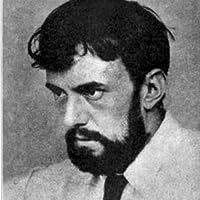
“For, indeed, this is the great horror, solitude, when the soul can no longer bathe in the ever-changing mind, laugh as its sunlit ripples lap its skin, but, shut up in the castle of a few thoughts, paces its narrow prison, wearing down the stone of time, feeding on its own excrement. There is no star in the blackness of that night, no foam upon the stagnant and putrid sea. Even the glittering health that the desert brings to the body, is like a spear in the soul's throat. The passionate ache to act, to think: this eats into the soul like a cancer. It is the scorpion striking itself in its agony, save that no poison can add to the tortue of the circling fire; no superflux of anguish relieve it by annihilation. But against these paroxisms is an eightfold sedative. The ravings of madness are lost in soundless space; the struggles of the drowning man are not heeded by the sea.”
― The Soul of the Desert
― The Soul of the Desert
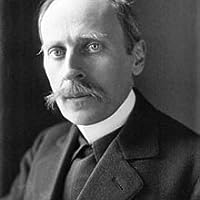
“I would rather have this life of combat than the moral calm and mournful stupor of these last years. God give me struggle, enemies, howling crowds, all the combot of which I am capable.”
― Correspondence, Diary Entries and Reflections, 1915-40
― Correspondence, Diary Entries and Reflections, 1915-40

“In almost all other professions a man must be able to observe carefully and report accurately what he has seen. Those qualifications are unnecessary for journalists, however, since their job is to write sensational stories that sell newspapers.”
― Masks of the Illuminati
― Masks of the Illuminati

“This is the supreme anguish of the soul; it realizes itself as itself, as thing separate from that which is not itself, from God. In this spasm there are two ways: if fear and pride are left in the soul, it shuts itself up, like a warlock in a tower, gnashing its teeth with agony. "I am I," it cried, "I will not lose myself," and in that state damned, it is slowly torn by the claws of circumstance disintegrated bitterly, for all its struggles, throughout ages and ages, its rags to be cast piecemeal upon the dungheap without the city. But the soul that has understood the blessedness of that resignation which grasps the universe and devours it, which is without hope or fear, without faith or doubt, without hate or love, dissolves itself ineffable into the abounding bliss of God. It cries with Shelley, as the "chains of lead about its flight of fire" drop molten from its limbs: "I pant, I sink, I tremble, I expire," and in that last outbreaking is made one with the primal and final breath, the Holy Spirit of God.
Such must be the climax of any retirement to the Desert on the part of any aspirant of the Mysteries who has the spark of that fire in him.”
― The Soul of the Desert
Such must be the climax of any retirement to the Desert on the part of any aspirant of the Mysteries who has the spark of that fire in him.”
― The Soul of the Desert
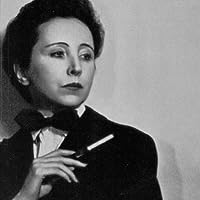
“The women cannot go out except to go to church or to the bullfight, and even that is unusual. I consider it a very ugly custom, and if I couldn't go out as I wished, I would leave this country [Spain], if only because of that one custom of the inhabitants.”
― The Early Diary of Anais Nin, Vol. 1
― The Early Diary of Anais Nin, Vol. 1

“It must here be explained that my innate diffidence forbade me to aspire to the Grade of Magus in any full sense. Such beings appear only in every two thousand years or so.”
― The Vision and the Voice: With Commentary and Other Papers
― The Vision and the Voice: With Commentary and Other Papers
“Die Menschen konnten sich im Sommer 1914 wirklich kein Bild machen von dem, was kommen wird? Sie hätten es wenigstens versuchen können.”
― Sommer 1914: Zwischen Begeisterung und Angst - wie Deutsche den Kriegsbeginn erlebten
― Sommer 1914: Zwischen Begeisterung und Angst - wie Deutsche den Kriegsbeginn erlebten
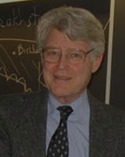
“The nationalities question fit ill with Marxism. It was perhaps even more puzzling than the peasant problem. One could at least delude oneself into believing that the peasant problem was soluble in Marxian terms by extrapolating from economic data, constructing Procrustean sociologies, and predicting the inevitable splitting of the peasants along class lines. But how did one fit nationality into the Marxist scheme? Of course, according to Marxian theory national boundaries created superficial divisions compared to economic forces and the relations of production, but nationalist passion seemed to inflame people and mobilize them even more than their class interests. World War I would show how ready people were to make sacrifices for the sake of the national or imperial dignity or, in the case of the Slavs of the Russian Empire, for related ethnic groups and coreligionists. Even the discredited Romanov dynasty would be able to rally its people around the war effort—at least at the outset. This was a complication—indeed, as history has showed, a fatal one—for a Marxian socialist with a genuinely internationalist orientation.”
― Lenin, Trotsky, and Stalin: The Intelligentsia and Power
― Lenin, Trotsky, and Stalin: The Intelligentsia and Power
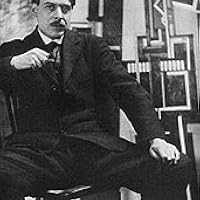
“The Press in 1914 had no Cinema, no Radio, and no Politics: so the painter could really become a 'star'. There was nothing against it. Anybody could become one, who did anything funny. And Vorticism was replete with humour, of course; it was acclaimed the best joke ever. Pictures, I mean oil-paintings, were 'news'. Exhibitions were reviewed in column after column. And no illustrated paper worth its salt but carried a photograph of some picture of mine or of my 'school', as I have said, or one of myself, smiling insinuatingly from its pages.”
― Blasting and Bombardiering: Autobiography
― Blasting and Bombardiering: Autobiography
All Quotes
|
My Quotes
|
Add A Quote
Browse By Tag
- Love Quotes 97.5k
- Life Quotes 76k
- Inspirational Quotes 73k
- Humor Quotes 43.5k
- Philosophy Quotes 29.5k
- Inspirational Quotes Quotes 27k
- God Quotes 26k
- Truth Quotes 23.5k
- Wisdom Quotes 23.5k
- Romance Quotes 23k
- Poetry Quotes 22k
- Death Quotes 20k
- Happiness Quotes 18.5k
- Life Lessons Quotes 18.5k
- Hope Quotes 18k
- Faith Quotes 18k
- Quotes Quotes 16.5k
- Inspiration Quotes 16.5k
- Spirituality Quotes 15k
- Religion Quotes 15k
- Motivational Quotes 15k
- Writing Quotes 15k
- Relationships Quotes 14.5k
- Life Quotes Quotes 14k
- Love Quotes Quotes 14k
- Success Quotes 13.5k
- Time Quotes 12.5k
- Motivation Quotes 12k
- Science Quotes 11.5k
- Motivational Quotes Quotes 11.5k


